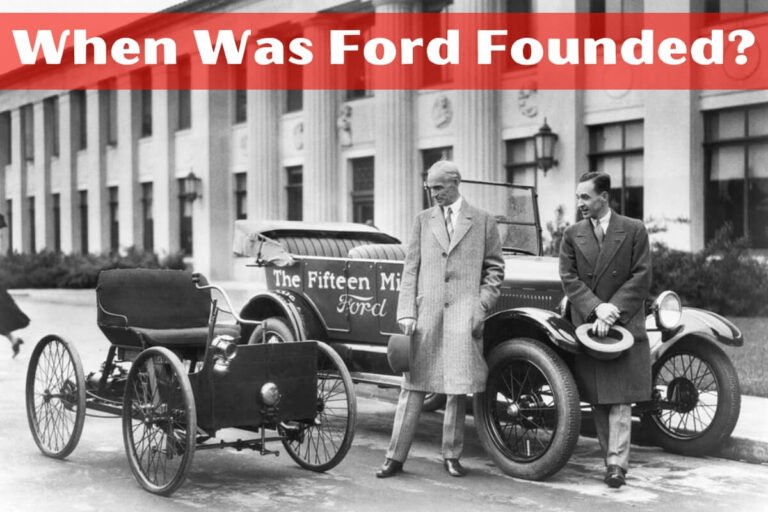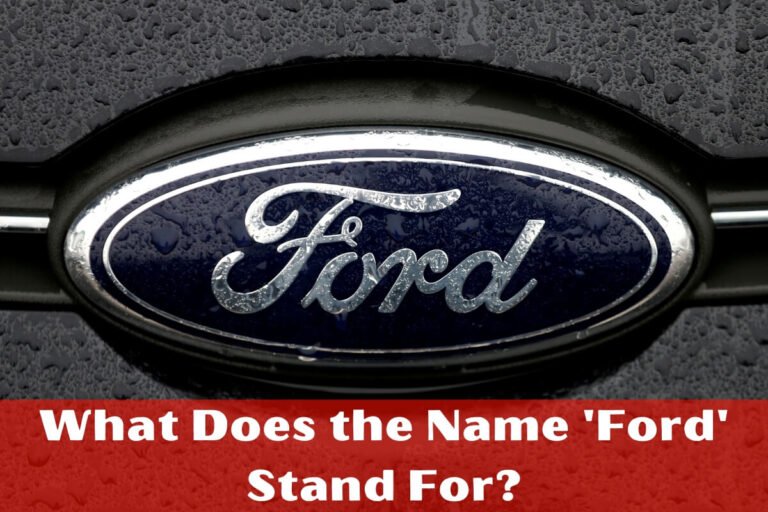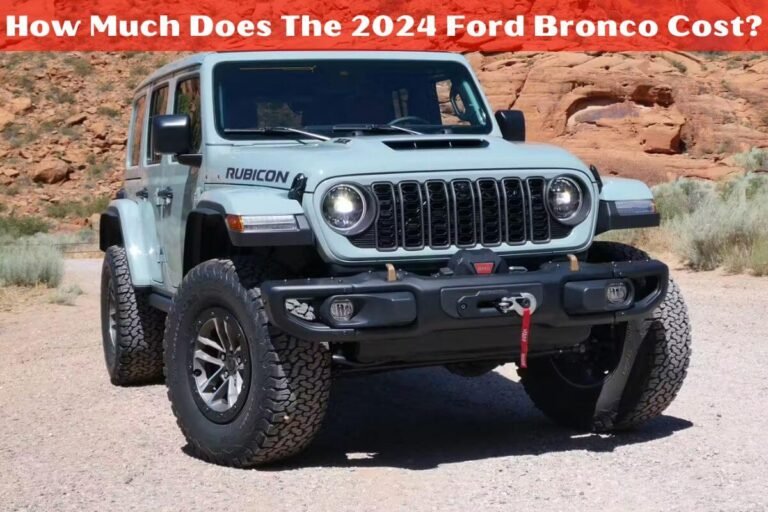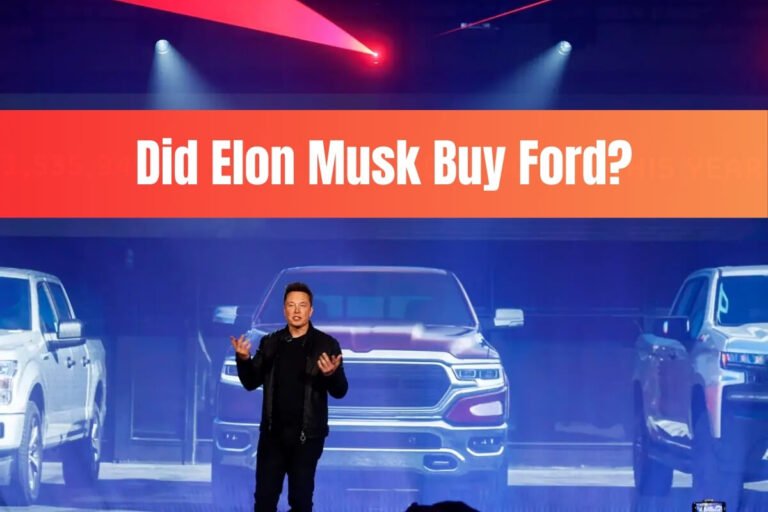Does Ford Own Land Rover? The Full Story
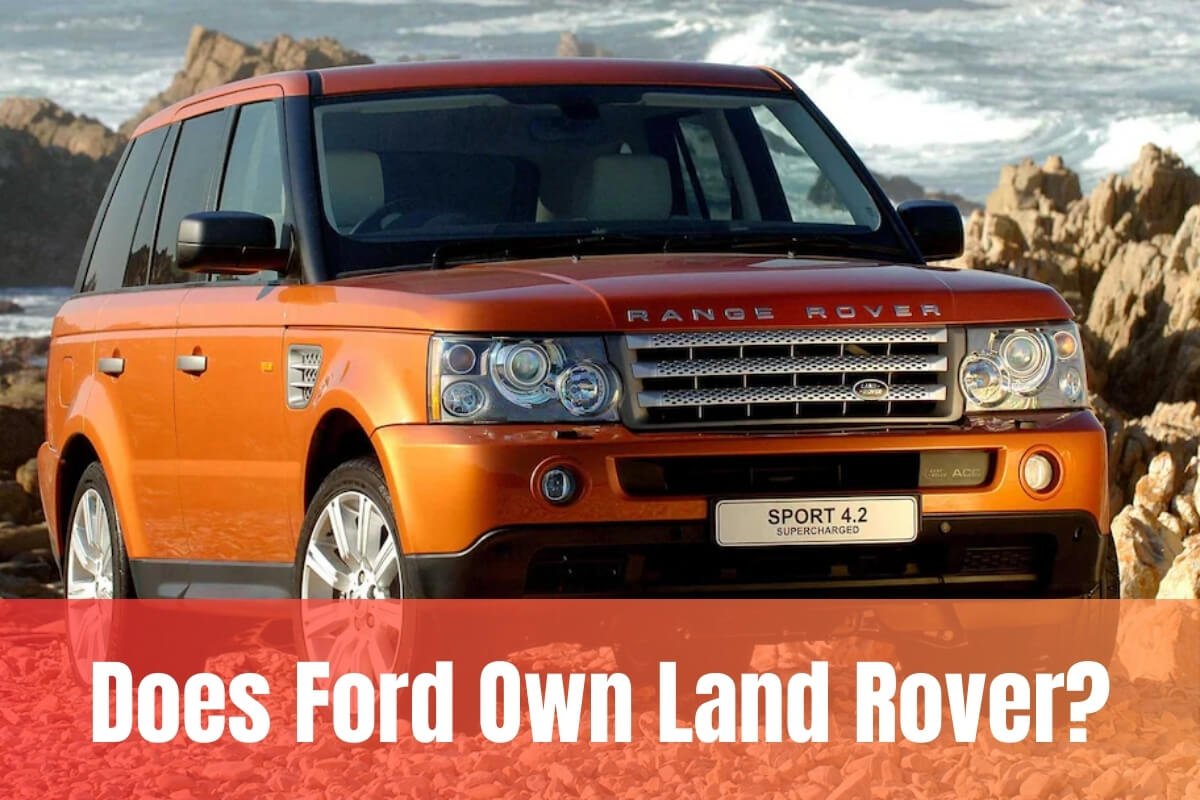
Land Rover, the iconic British brand known for its rugged and luxurious off-road vehicles, has a rich history that spans decades. Over the years, the ownership of this esteemed marque has changed hands several times, with various automotive giants taking the reins. One name that often comes up in discussions about Land Rover’s past is Ford Motor Company.
But does Ford own Land Rover? The short answer is no, Ford does not currently own Land Rover. However, the Blue Oval did have a significant stake in the brand for several years until 2008.
In this comprehensive guide, we’ll dive deep into the intricate ownership history of Land Rover, exploring its origins, the various companies that have controlled the brand, and the reasons behind the changes in ownership. We’ll also examine Land Rover’s current standing and its future prospects under the leadership of its parent company, Tata Motors.
Land Rover’s Origins and Early Years
To truly understand Land Rover’s journey, we must go back to its humble beginnings. The origins of this iconic brand can be traced back to 1947, when Maurice Wilks, the chief designer at the Rover Company, sketched the initial plans for a rugged, go-anywhere vehicle. Inspired by the versatility of the Jeep during World War II, Wilks envisioned a vehicle that could tackle the toughest terrains while serving as a practical utility vehicle for farmers and adventurers alike.
In 1948, the first Land Rover prototype, famously dubbed the “Land Rover,” made its debut at the Amsterdam Motor Show, capturing the attention of the automotive world. With its signature boxy design, sturdy construction, and unparalleled off-road capabilities, the Land Rover quickly gained a reputation as a reliable and versatile workhorse.
The British Leyland Era
As the Land Rover’s popularity grew, the Rover Company became part of the Leyland Motor Corporation in 1967, which later evolved into British Leyland. During this period, the Land Rover lineup expanded with the introduction of iconic models like the Range Rover in 1970 and the Defender in the 1980s.
However, the British Leyland era was not without its challenges. Financial troubles plagued the company, leading to restructuring and eventual privatization in the late 1980s.
The BMW and Ford Years
In 1994, the Rover Group, which included Land Rover, was acquired by the German automotive giant BMW. Under BMW’s ownership, Land Rover saw significant investments and the development of new models, such as the second-generation Range Rover and the Freelander.
However, BMW’s tenure as the owner of Land Rover was relatively short-lived. In 2000, as part of a strategic restructuring, BMW broke up the Rover Group and sold Land Rover to Ford Motor Company for $2.9 billion.
Ford’s Ownership and Investment
Ford’s acquisition of Land Rover marked a new chapter in the brand’s history. As part of Ford’s Premier Automotive Group, which also included Jaguar, Aston Martin, and Volvo, Land Rover benefited from substantial investments and shared resources.
During Ford’s ownership, Land Rover introduced several successful models, including the Range Rover Sport in 2005 and the LR3 (Discovery 3) in 2004. Additionally, Ford oversaw the development of new engines, including the highly acclaimed Jaguar-derived AJ-V8 powerplant.
However, despite these advancements, Ford’s ownership of Land Rover was not without its challenges. The global financial crisis of 2008 hit the automotive industry hard, and Ford found itself struggling to maintain its diverse portfolio of brands.
The Tata Motors Era Begins
In 2008, Ford made the decision to sell both Jaguar and Land Rover to the Indian conglomerate Tata Motors. The sale, valued at $2.3 billion, marked the beginning of a new era for Land Rover under the ownership of Tata Motors.
Since the acquisition, Tata Motors has proven to be a committed and dedicated owner, investing heavily in the Land Rover brand and its future. Under Tata’s leadership, Land Rover has continued to innovate and introduce new models, such as the Range Rover Evoque in 2011 and the all-new Defender in 2020.
Expansion and Global Footprint
One of the key advantages of Tata’s ownership has been the expansion of Land Rover’s global footprint. In addition to its traditional manufacturing facilities in the United Kingdom, Land Rover now has assembly plants in countries like China, India, Brazil, and Slovakia.
This global presence has allowed Land Rover to cater to local markets more effectively and tap into emerging economies, contributing to the brand’s continued growth and success.
Land Rover’s Future Under Tata Motors
As we look to the future, it’s clear that Land Rover’s prospects are bright under the stewardship of Tata Motors. The Indian conglomerate has demonstrated a strong commitment to preserving Land Rover’s heritage while pushing the boundaries of innovation and sustainability.
One of the key focus areas for Land Rover is electrification. In recent years, the brand has introduced several electrified models, such as the Range Rover Sport PHEV and the all-electric Jaguar I-Pace. Additionally, Land Rover has announced plans to transition its entire lineup to fully electric powertrains by 2030, aligning with the global push towards sustainable mobility.
Continued Investment and Expansion
Tata Motors has also pledged to continue investing in Land Rover’s research and development efforts, ensuring that the brand remains at the forefront of automotive technology and design. This includes investments in areas such as autonomous driving, connected car technologies, and advanced manufacturing processes.
Furthermore, Land Rover’s expansion into new markets and segments is expected to continue under Tata’s leadership. The brand has already made inroads into the luxury SUV segment with models like the Range Rover Velar, and there are rumors of potential new additions to the lineup, including a smaller, more affordable SUV to cater to a broader customer base.
In Summary
While Ford does not currently own Land Rover, the American automaker played a significant role in shaping the brand’s trajectory during its ownership from 2000 to 2008. Today, Land Rover stands as a shining example of British automotive excellence, backed by the resources and commitment of its parent company, Tata Motors.
As we look ahead, Land Rover’s future appears bright, with a strong focus on electrification, sustainability, and continued innovation. With Tata Motors at the helm, the iconic brand is well-positioned to tackle the challenges of the modern automotive landscape while staying true to its off-road roots and legacy of adventure.


